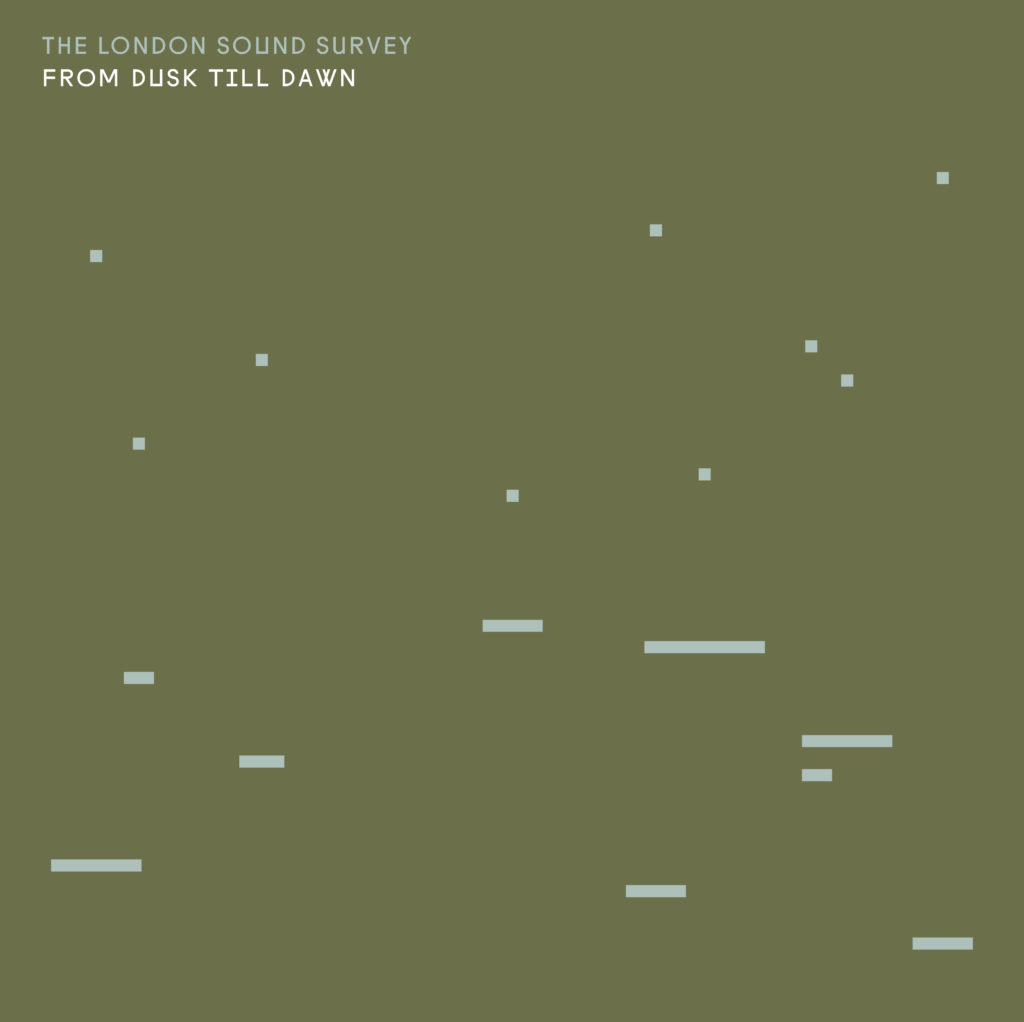Chris Watson lends his ears to ‘From Dusk Till Dawn’ — a posthumous album of field recordings by Ian Rawes, aka The London Sound Survey, out next week.

Ian Rawes had a special light around him, an aura. On stage his conversational style was captivating. He would immediately engage and disarm his audience with experiences and tales that would inform and entertain before playing extracts and clips from his London Sound Survey. Ian’s stories and accounts often sounded exotic to my ear as they were from obscure and unknown (to me) parts of London; I heard the voices of people and places that seemed just as remote as Bamako or Jaipur.
From Dusk Till Dawn is a nocturnal sound walk, north and east from Cambridge. A purposeful ramble across the fens and marshes to Winterton on the Norfolk coast. The recording locations are arranged, roughly, in the order one would walk. However this album is not a field or wildlife guide: it’s an exploratory journey that reveals a series of sublime, captivating and unsettling acoustic landscapes. I imagine Rawes poring over Ordnance Survey maps before striking out and then being drawn towards the sounds through a peculiar cocktail of East Anglian mist and half light.
A massed chorus of wildfowl on the Welney Washes at sunset is a classic evening overture. The distant voices of teal, wigeon and whooper swans mix and merge with the papery rustle and dry hiss of sedges and reeds. This first track is a perfect opener and a timeless expression of the signature sounds of Norfolk in winter.
‘Buckenham Rooks’ is also an ancient sound, a crow roost mentioned in the Domesday book. Tens of thousands of jackdaws, rooks and crows melting into the leafless winter woodland canopy to roost and converse long after the daylight has evaporated.
Rawes describes his listening experiences on location as feeling immersed in a ‘remote past’, and that sense of evoking a spirit of place is raised powerfully during ‘Inside Pumping Station’. Taking refuge at midnight within an abandoned pump house, Rawes, with the instinctive ear of a sound recordist, clearly heard how what was happening outside was being reflected by the tuneful chaos inside. The results are detailed and disturbing.
As Rawes reaches Joist fen and Trial wood there is a seasonal shift into a remarkable spring chorus. The voices of reed warblers, Cetti’s warbler, cuckoo and bittern pour out from the bread-coloured Phragmites reeds. Of course this is not a performance, it’s an in-the-moment happening and in the words of Simon Puxley “notes could not spell out the score”.
By the time Ian Rawes reached the beach at Winterton the year was turning and this autumnal track punctuates the conclusion of his remarkable journey. Through a monochrome North Sea sunrise, the siren songs of grey seals hauled out on the sand appear to hang motionless in the chill air. This is a beautifully balanced recording in which the seal songs ebb and flow through the wave wash. These are haunting voices which, centuries ago, would have lured returning sailors to destruction, beached on the dunes or dashed on the rocks.
This album is a remarkable collection. It has the ear, flair and tone of Ian Rawes as a storyteller, and through the salt spray of Winterton beach I can see him beaming.
*
‘From Dusk till Dawn’ is to be released on Persistence of Sound next Friday. Pre-order a copy here.
In celebration of Ian’s life and work and the release of ‘From Dusk Till Dawn’, Persistence of Sound are holding an event at IKLECTIK, SE1, this coming Sunday (11th September), featuring performances and talks from musicians, writers and friends who knew Ian and his work. Advance tickets are £8.50, with all proceeds going to The Brain Tumour Charity. More information and tickets available here.